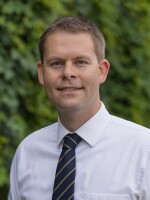Citizen science is a growing opportunity for non-professional and amateur scientists to participate in professional research.
There are numerous opportunities for citizen science in the St. Louis area and engaging in such endeavors can contribute to protecting environments and preserving species.
Host Don Marsh talked with a variety of guests engaged in citizen science efforts including ยฉ 2024 อโอ๘ฬ์ฬรโs science reporter Veronique LaCapra. Sheโs on temporary assignment with NPRโs science desk in Washington, D.C. and recently .
Marsh also spoke with Chip Taylor, Founder and Director of , an organization which seeks to study and preserve monarch butterflies. Taylor is a Professor in the Department of Ecology and Evolutionary Biology at the University of Kansas. He is also the science advisor of a new film coming to the Omnimax, .
Gerald Axelbaum is a fifth grade teacher at in Webster Groves. For the past 20 years, he and his students have participated in Monarch Watch. Axelbaum described the process and how his students interact with and learn about monarch butterflies.
Finally, Peggy James Nacke, Special Events Director at the and coordinator of joined the show, as did Mike Dawson, the .
Listeners also weighed in recounting their experiences with citizen science. A selection of listener emails is below.
Nicole: My children and I participate in Project FeederWatch from the Cornell Lab of Ornithology. ย We did it just to add a bit of science and learn about birds. ย However, we are learning so much more. ย The birds came but so did the predators and my kids get a kick out of watching the alley cat slip into the asparagus plants and wait patiently for the next bird feeder customer.ย They are also amazed at how birds communicate. ย Once one bird spots the cat, all the birds leave at once on some signal that we've yet to perceive. ย It has been a great experience, and now my kids are asking what we can do next.
Joesph: Each spring for the last two years I have helped with a Shawnee National Forest breeding songbird survey run by the cooperative wildlife lab at SIUC - a long term study of population trends. Itโs out in the woods and I get a small stipend for each survey - paid bird watching, who can beat it?
Jim Small, President of the St. Louis Astronomical Society: There are many opportunities for citizen science online. ย One of the largest is the zooniverse found at www.zooniverse.org The World Bird Sanctuary is also involved with Bird Counts and banding projects, rehabilitation and many other programs involving birds in the area as well as providing many education programs. ย Many volunteer opportunities exist. The St. Louis Astronomical Society topic this month is Cosmic Rays with Martin Israel from Washington University







